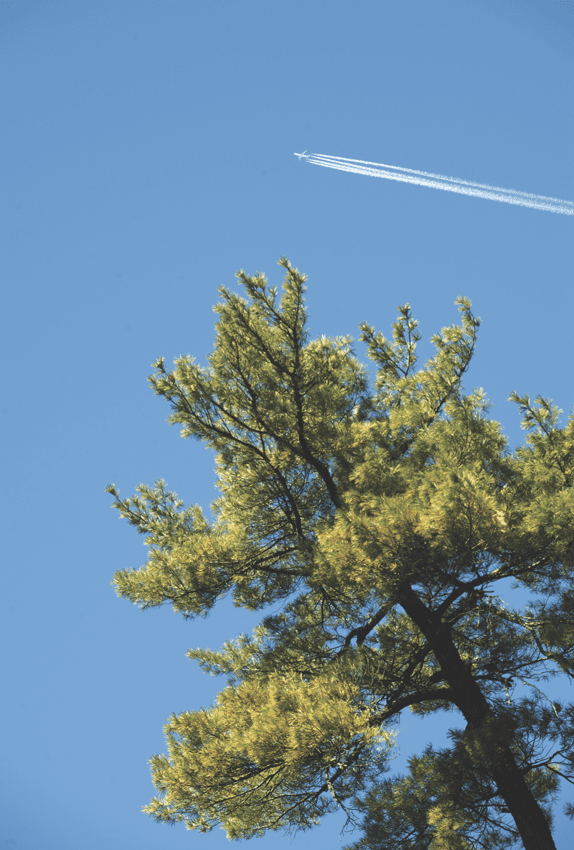
January 5, 2023 By Michael Weymouth
Whether we are spending our final years in the comfortable surroundings of Linden Ponds or trying to navigate old age in our own homes, we are inevitably confronted with life’s great existential mysteries. In my case, I have found solace in the natural world, in particular in the deep woods.
My earliest memories of the woods are of a dark and mysterious and sometimes fearful place that stood like a closed door at the edge of fields and roadsides. It was a world one entered only at one’s peril. As time passed, the door gradually opened, as youthful, self-imposed barriers inevitably do and I soon learned to love the woods. Darkness became light, mystery became magic and fearful corners revealed themselves as nothing more than the dark side of a boy’s vivid imagination.
It was there that I heard the gentle whisper of living things.
CATHEDRAL
Each day at noon
a contrail arcs high over the pond
traveling from east to west
crispy white against the blue sky.
I imagine mellow passengers
with vivid memories of
anisette on the Left Bank, of viewing
old masters in the Louvre, of
reverential walks through
Chartres and Notre Dame
ornate cathedrals, testimonials to
man’s quest for everlasting life.
Yet
I have stood in those holy shrines
with their towering man-made spires and
felt only the sweat of weary men
doing the bidding of men of God.
No such work among these wooded spires
whose reach is toward a giving sun
where existential answers are all about
for those who take the time to see
that we are one with the natural world
that God is in the woodwork telling us
that the spark of life among these trees is
no less great than that of man.
I have these thoughts
as my fingers caress a tiny cone
its seeds long spent to the wind
watching the contrail slowly fade to blue
water vapor, once warm now cool.
Looking to nature for existential answers pays tribute to Lao Tzu, a sixth century B.C. philosopher believed to be the founder of Taoism. In his quest to understand life’s mysteries Lao Tzu left the world of man to live alone in the natural world. The result was the Tao de Ching. When Lao Tzu reached a point where words could no longer describe what he was thinking and feeling, he lumped all the remaining mystery into the proverbial “ten thousand things,” a number that was presumably so high and incomprehensible that rather than try to understand the unresolved mysteries therein, one should just accept them. Nevertheless, Lao Tzu’s view of the connectivity of all living things, between the natural world and that of man, was a defining moment in philosophy.

